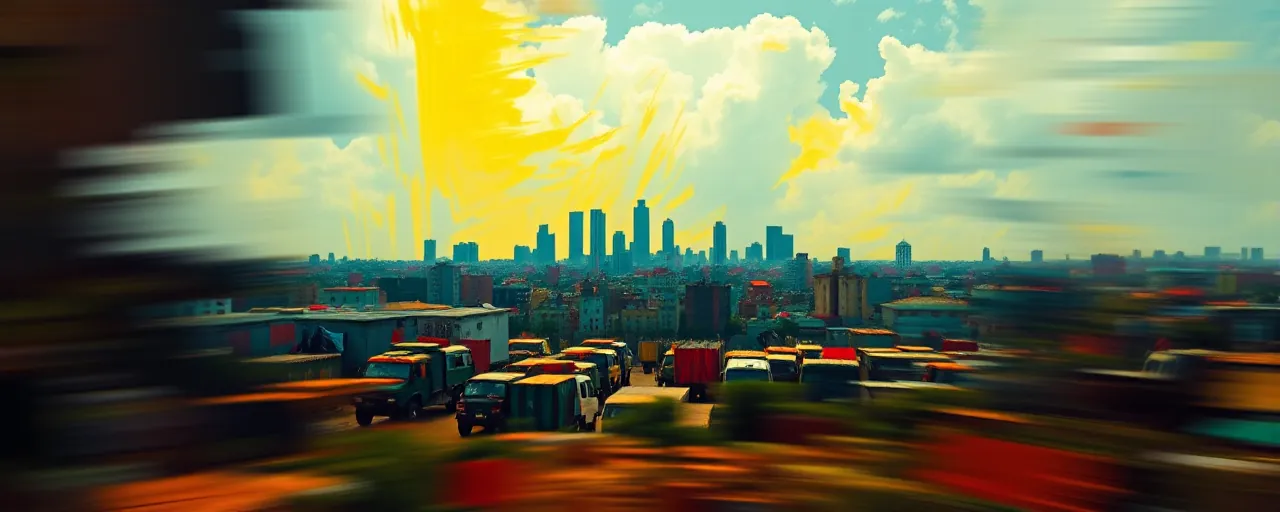A Deadly Plot Unfolds
It came out of nowhere. On a tense morning in Kinshasa, armed men in camouflage stormed the Palais de la Nation, the heart of the Democratic Republic of Congo’s government. Bullets tore through Deputy Prime Minister Vital Kamerhe’s residence, claiming six lives, including two police officers and an innocent civilian. This wasn’t a spontaneous uprising; it was a calculated assault, orchestrated by American citizens bent on toppling a fragile democracy. The United States Department of Justice revealed this week that Marcel Malanga, Tyler Thompson, Benjamin Zalman-Polun, and Joseph Peter Moesser face charges for their roles in this brazen coup attempt, a scheme that sought to install a new regime under the banner of 'New Zaire.'
The audacity staggers the mind. These men, hailing from Utah and beyond, didn’t just dream of chaos; they armed it, funded it, and flew it across borders. Drones rigged with bombs and flamethrowers, a chilling innovation in asymmetric warfare, were their tools of choice. Their target? President Félix Tshisekedi and Kamerhe, leaders elected to steer a nation still healing from decades of conflict. For those of us who believe in self-determination and the sanctity of democratic will, this isn’t just a crime; it’s a betrayal of everything America claims to stand for.
What drives four Americans to export violence to a country most couldn’t find on a map? The Justice Department’s complaint paints a picture of arrogance and opportunism, led by Christian Malanga, a self-styled exile turned would-be dictator who died in the fray. His son Marcel and their accomplices didn’t hesitate to recruit, train, and arm a rebel force, all while plotting to murder foreign officials. This wasn’t about ideology; it was about power, a reckless grab that left blood on the streets and families shattered.
The Cost of American Interference
Let’s be clear: the DRC isn’t a playground for American adventurers. It’s a nation of 100 million people, rich in cobalt and copper, yet scarred by colonial exploitation and civil war. Tshisekedi’s government, imperfect as it may be, represents a hard-won chance at stability. The coup’s architects didn’t care about that. They saw a vacuum and filled it with guns, explosives, and delusions of grandeur. Six deaths might sound like a statistic, but each one was a person, a story snuffed out by foreign hands.
This isn’t the first time U.S. citizens have meddled abroad with disastrous results. History whispers of the 1953 coup in Iran, where American fingerprints helped topple a democracy for oil, birthing decades of resentment. Or Guatemala in 1954, where a CIA-backed overthrow installed a dictator, fueling unrest that lingers still. Today, the DRC plot echoes that legacy, a reminder that unchecked American ambition can destabilize nations already on the brink. The difference now? Drones and bombs make the carnage more precise, more devastating.
Supporters of harsh national security measures might argue these men were outliers, rogue actors who don’t reflect U.S. values. They’ll point to the Justice Department’s swift response as proof the system works. But that’s a convenient dodge. The ease with which they procured weapons, trained fighters, and shipped chaos overseas exposes a gaping hole in oversight. Material support laws exist for a reason, yet here we are, watching Americans turn drones into tools of terror. The real question isn’t whether we can prosecute them; it’s why we didn’t stop them sooner.
A Call for Global Justice
The legal fallout is unfolding now. Malanga, Thompson, and Polun will face a Brooklyn courtroom, while Moesser answers in Salt Lake City. If convicted, they could spend their lives behind bars, a fitting end for a plot that treated human lives as collateral damage. International law backs this push; the Ljubljana Convention, adopted last year, strengthens cross-border prosecution of crimes like these. Article 8 demands accountability for nationals who wreak havoc abroad, a principle the U.S. must honor if it wants to reclaim any moral high ground.
Yet justice can’t stop at punishment. The DRC’s wounds demand more than jail terms for four men. America’s role in this mess, from lax export controls to diplomatic ties tangled in mineral deals, needs a reckoning. Research from 2024 shows non-state actors like these coup plotters thrive on advanced tech, with over 1,100 drone incidents logged globally. Hamas used UAVs to breach borders; Hezbollah turned them into weapons. The DRC plot fits this pattern, a warning we can’t ignore. We need tighter regulations, yes, but also a foreign policy that prioritizes stability over exploitation.
Some will cry sovereignty, insisting the U.S. has no business policing the world’s conflicts. They’ll say Tshisekedi’s government should’ve seen it coming, that weak states invite trouble. That’s a cop-out. Blaming the victim ignores the power imbalance; a handful of Americans with cash and drones outmatched a nation’s defenses. Universal jurisdiction exists for this reason, to hold the powerful accountable when they prey on the vulnerable. The ICC’s framework, flawed as it is, offers a path forward, one the U.S. should embrace rather than sidestep.
Rewriting the American Story
This coup attempt isn’t just a legal case; it’s a mirror. It reflects a nation too often blind to the chaos its citizens export. For every family mourning in Kinshasa, for every child who saw their future bombed away, we owe answers. Not platitudes about freedom, but real action: stricter controls on weapons and tech, a foreign policy that lifts up democracies instead of undermining them, and a justice system that doesn’t just react but prevents.
The DRC deserves better than to be a footnote in someone’s power trip. So do we. If America wants to lead, it has to stop enabling those who’d rather burn the world down than build it up. These four men chose violence over reason, and now they’ll face the consequences. But the bigger fight is ours, to ensure this never happens again.
